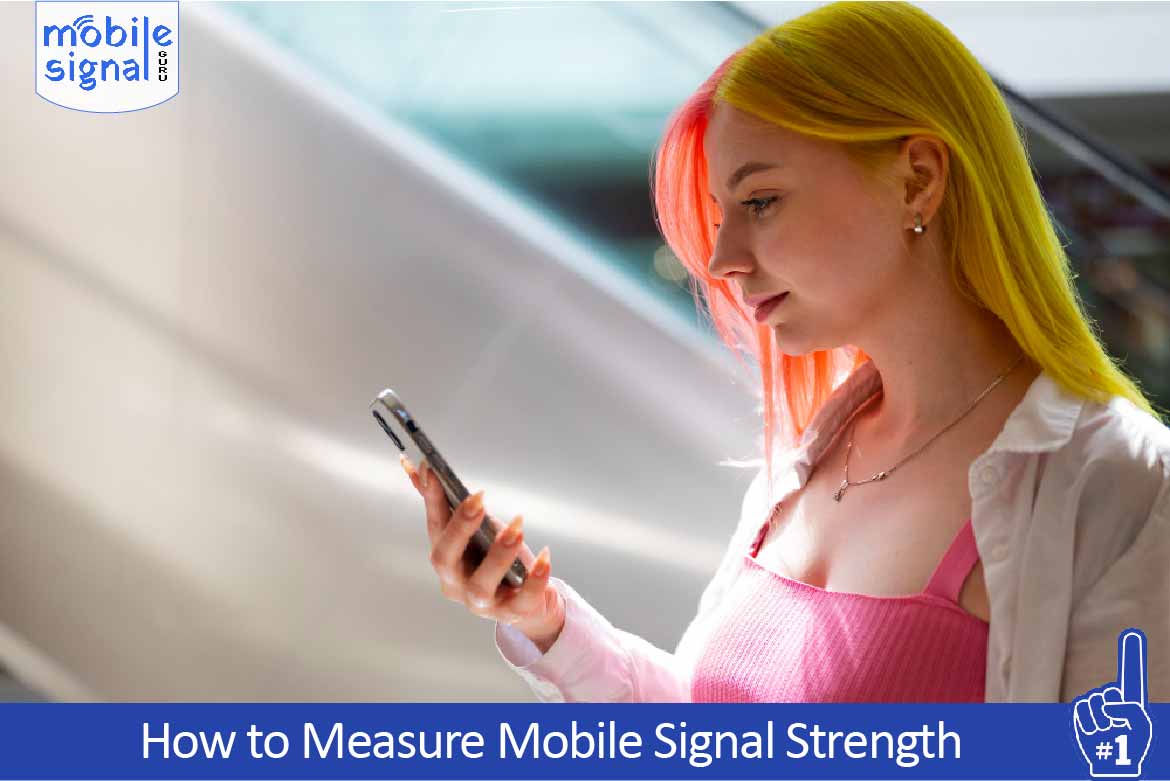In today’s world, where constant connectivity is essential for both personal and professional life, a reliable mobile signal is something we often take for granted—until it fails us. Whether it’s dropped calls, slow internet speeds, or texts that won’t send, weak mobile signals can be a major source of frustration. Understanding mobile signal strength and knowing how to measure it are crucial first steps in addressing these issues. In many cases, a mobile signal booster can offer a highly effective solution to enhance weak signals, ensuring smooth and reliable communication.
What is Mobile Signal Strength?
Mobile signal strength refers to the quality of the connection between your mobile device and the nearest cell tower. This connection is measured in decibels (dBm), with the signal strength typically ranging from -30 dBm (a very strong signal) to -110 dBm (a very weak signal). The closer the number is to 0, the stronger the signal.
Signal strength is influenced by various factors including the distance from the cell tower, obstacles like buildings or natural terrain, and interference from other electronic devices. For instance, if you are far from a cell tower or in a heavily shielded area like a basement or behind thick walls, your mobile signal is likely to be weaker.
How to Measure Mobile Signal Strength
While most people rely on the bars or dots displayed on their phone’s screen to judge signal strength, these indicators are not very accurate. A better approach is to measure the signal strength in dBm using the following methods:
- Field Test Mode:
- iPhone: Go to the phone dialer and enter 3001#12345#, then press the call button. This will take you into Field Test Mode, where you can view detailed information about your mobile signal, including the dBm reading.
- Android: The process varies slightly depending on the manufacturer, but generally, you can access signal information by going to “Settings,” selecting “About Phone,” and then “Status” or “Network.” Here, you will find the signal strength in dBm.
- Signal Meter Apps:
- There are various apps available that can help you measure your mobile signal strength more accurately. Apps like “Network Cell Info Lite” for Android or “OpenSignal” for both iOS and Android offer detailed insights into your signal strength and network performance.
- Signal Meters:
- For the most precise measurement, especially in a professional setting, a handheld signal meter can be used. These devices are designed to provide accurate dBm readings and are often used by technicians to diagnose and troubleshoot signal issues.
Understanding dBm Readings
- -50 dBm to -79 dBm: Strong signal. You should have no issues with calls, texts, or internet browsing.
- -80 dBm to -89 dBm: Good signal. Most activities will function well, though you may notice some slowdown in data-heavy tasks.
- -90 dBm to -99 dBm: Fair signal. You may experience occasional call drops and slower data speeds.
- -100 dBm to -109 dBm: Poor signal. You are likely to encounter frequent call drops, failed messages, and very slow internet.
- -110 dBm or lower: Very poor or no signal. Communication is unreliable, if possible at all.
Common Causes of Weak Mobile Signal
Several factors can contribute to weak mobile signals, including:
- Distance from the Cell Tower: The further you are from the tower, the weaker your signal will be.
- Obstructions: Buildings, trees, hills, and even weather can block or weaken the signal as it travels from the cell tower to your phone.
- Interference: Electronic devices, large metal objects, and even other networks can interfere with your mobile signal.
- Building Materials: Some building materials, such as concrete, metal, or glass, can significantly weaken or block mobile signals.
The Role of Mobile Signal Boosters
A mobile signal booster, also known as a cell phone repeater, is a device designed to improve weak mobile signals. It works by capturing the existing weak signal, amplifying it, and then rebroadcasting the strengthened signal to the surrounding area. Here’s how a typical mobile signal booster system works:
- Outdoor Antenna: The outdoor antenna captures the weak signal from the cell tower. This antenna is usually mounted on the roof or another high point outside the building.
- Amplifier: The captured signal is then sent to the amplifier inside the building. The amplifier boosts the signal strength.
-
Indoor Antenna: Finally, the boosted signal is transmitted indoors through the indoor antenna, improving the signal strength throughout the home, office, or vehicle.
Benefits of Using a Mobile Signal Booster
Using a mobile signal booster offers several advantages:
- Enhanced Signal Strength: The primary benefit is a stronger, more reliable mobile signal, which means fewer dropped calls, faster data speeds, and more reliable text messaging.
- Improved Call Quality: Weak signals often lead to poor call quality. A signal booster can eliminate static, dropped words, and other issues that make conversations difficult.
- Better Battery Life: When your phone is struggling to find a signal, it uses more power, which drains the battery quickly. By boosting the signal, a mobile signal booster helps extend your phone’s battery life.
- Broader Coverage: Signal boosters can cover entire homes, offices, or even larger buildings, ensuring that everyone within the range has access to a strong mobile signal.
-
Works with Multiple Devices: A single mobile signal booster can support multiple devices simultaneously, making it an ideal solution for households or businesses with several users.
Choosing the Right Mobile Signal Booster
When selecting a mobile signal booster, consider the following factors:
- Coverage Area: Determine the size of the area that needs coverage. Boosters are available in different capacities, from small single-room units to large systems that cover multiple floors or entire buildings.
- Frequency Bands: Make sure the booster supports the frequency bands used by your mobile carrier. Most modern boosters are multi-band, meaning they work with multiple carriers and support various frequencies.
- Signal Strength: If the outdoor signal is extremely weak, you’ll need a more powerful booster. Conversely, if you only need a slight boost, a less powerful unit may suffice.
- Installation Requirements: All our boosters are plug-and-play, while others may require professional installation, especially if you need to cover a large area.
-
Carrier Compatibility: Ensure that the signal booster is compatible with your carrier. Some boosters work with all major carriers, while others may be optimized for specific networks.
Conclusion
Understanding mobile signal strength and how to measure it is crucial for ensuring you have reliable communication, especially in areas where signal reception is poor. While weak signals can be frustrating, solutions like mobile signal boosters can dramatically improve your connectivity. By amplifying the existing signal, these devices provide stronger, clearer signals that ensure you stay connected, whether you’re at home, in the office, or on the go. Investing in a mobile signal booster is a practical step towards enhancing your mobile experience, eliminating the frustrations of weak signals, and ensuring you have the connectivity you need, when you need it.
 Australia (AUD)
Australia (AUD) Denmark (DKK)
Denmark (DKK) France (EUR)
France (EUR) Germany (EUR)
Germany (EUR) Ireland (EUR)
Ireland (EUR) Malta (EUR)
Malta (EUR) Netherlands (EUR)
Netherlands (EUR) New Zealand (NZD)
New Zealand (NZD) Norway (NOK)
Norway (NOK) Spain (EUR)
Spain (EUR) Sweden (SEK)
Sweden (SEK) UAE (AED)
UAE (AED) United Kingdom (GBP)
United Kingdom (GBP)
